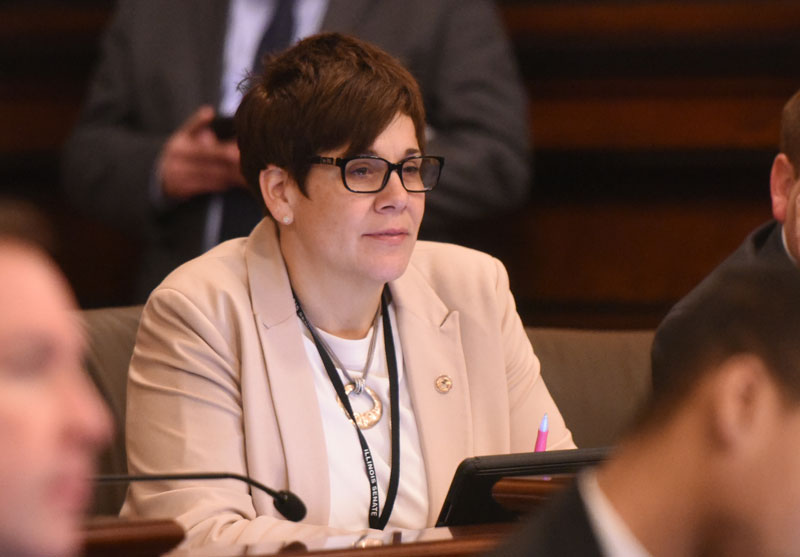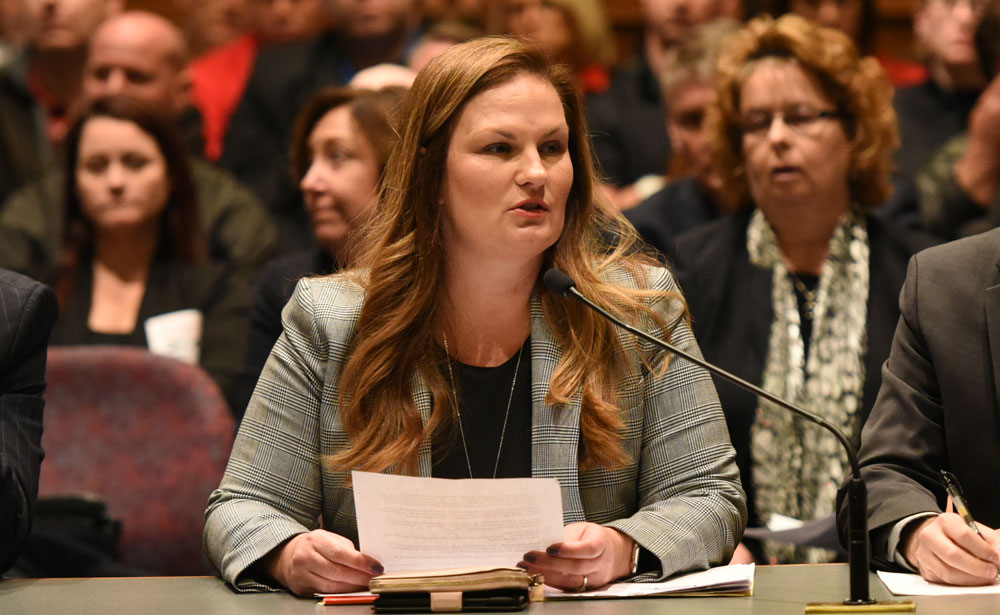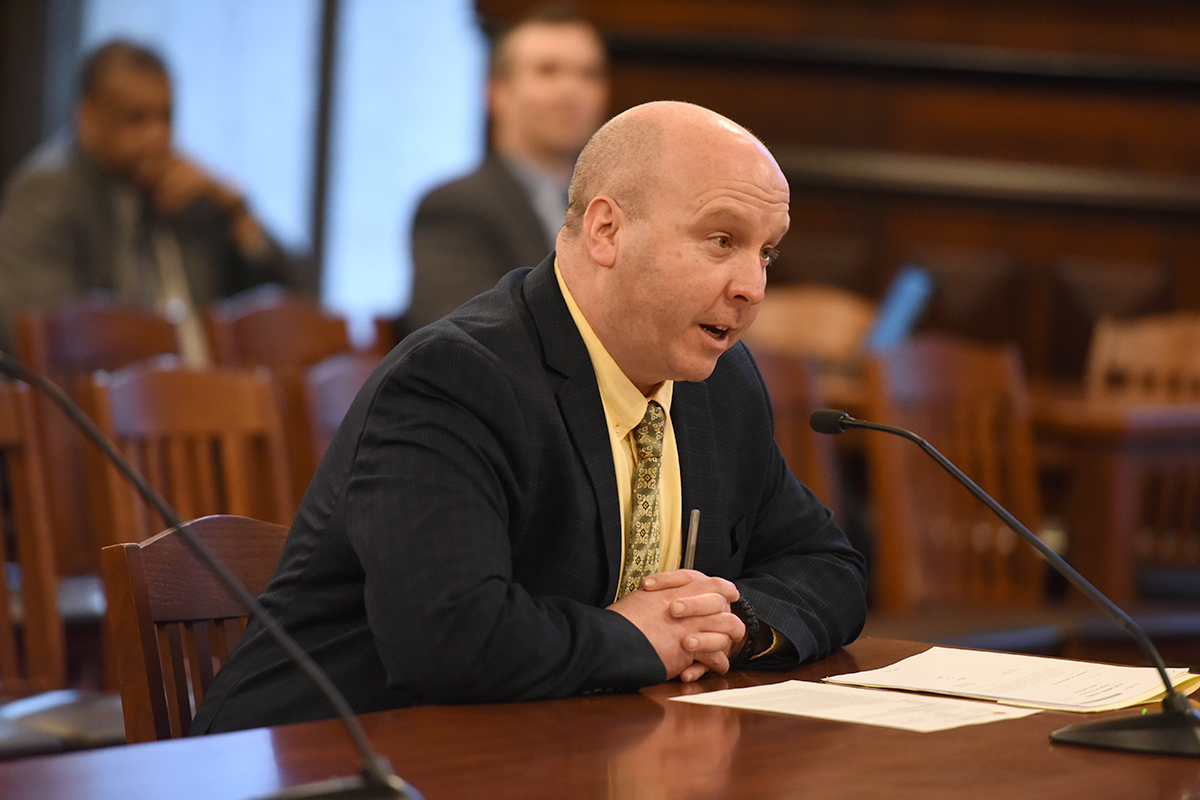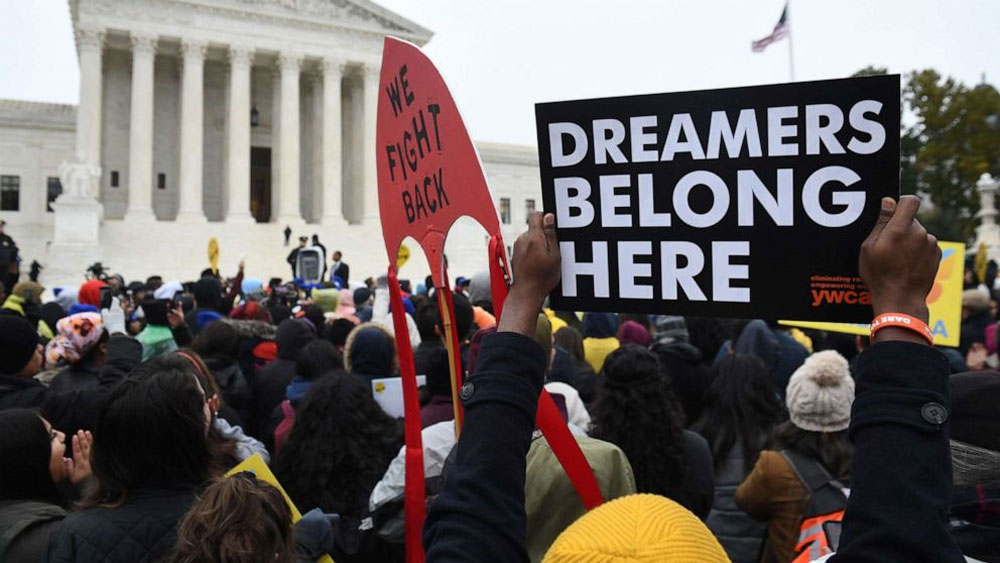- Details
- Category: Senator Napoleon Harris III News
 CHICAGO – State Senator Napoleon Harris (D-Harvey) urges local businesses—particularly businesses in disproportionately impacted communities—to apply for more than $540 million in grant funding through the new Business Interruption Grant program.
CHICAGO – State Senator Napoleon Harris (D-Harvey) urges local businesses—particularly businesses in disproportionately impacted communities—to apply for more than $540 million in grant funding through the new Business Interruption Grant program.
“Disadvantaged communities need help now more than ever. Business owners are showing real determination to get through this pandemic, but it has been a challenge. This grant opportunity could provide the support they deserve,” Harris said. “I urge all local businesses in the area to apply for these grants to reduce some financial hardship.”
The Illinois Department of Commerce and Economic Opportunity (DCEO) will offer $60 million in grants for the first round of BIG funding to small businesses harmed by the pandemic, many of whom have also seen damage as a result of recent civil unrest. The funds are intended to help small businesses stay viable through the pandemic, offset the cost of closures and restricted operations, and ensure they have the resources to reopen safely.
Among other specific programs, DCEO plans to disburse $20 million across 1,000 grants of $20,000 each to businesses in disproportionately impacted areas with recent significant property damage. To qualify for these grants, businesses must have:
- Brought in under $2 million in revenue in 2019, or a prorated amount if in business for less than a year;
- Been in operation for at least three months prior to March 2020;
- Experienced costs or losses of at least $20,000 since the Stay at Home order was put in place on March 21, 2020, due to closure or reduced operations as a result of the COVID-19 pandemic; and
- Experienced recent property damage, exacerbating the economic impacts of COVID-19.
DCEO and its grant administration partners are scheduled to post applications this week for review and questions. Applications will be accepted June 24 through July 1. Applicants who are selected for the grants should hear from grant administration partners by early July, and grants are scheduled to be disbursed by the end of July.
- Details
- Category: Senator Jennifer Bertino-Tarrant News
 PLAINFIELD — The state’s education package spearheaded by State Senator Jennifer Bertino-Tarrant (D-Shorewood), which will provide assistance and relief to teachers and schools that were affected by the COVID-19 pandemic, became law today.
PLAINFIELD — The state’s education package spearheaded by State Senator Jennifer Bertino-Tarrant (D-Shorewood), which will provide assistance and relief to teachers and schools that were affected by the COVID-19 pandemic, became law today.
“Teachers and students are dealing with a situation they could have never planned for, so it’s our responsibility to ensure they get the support they need,” Bertino-Tarrant said. “Our educators must be equipped with the right tools to give students a quality education — even if they do so from a distance.”
The education package does a number of things to help students and teachers affected by the COVID-19 pandemic. It includes extending educator license renewals for one year, so teachers don’t have to go through the renewal process while working remotely. It also allows for mandatory tests to be taken remotely, so students don’t have to risk getting sick in order to take an exam they need to apply for college.
Additionally, relating to higher education, any grade of “pass,” “credit,” or “satisfactory” during the public health emergency is transferable and will fulfill prerequisite requirements for more advanced courses.
“Students who worked hard on their classes during unprecedented circumstances should not have to sacrifice that work because they didn’t get a typical letter grade,” Bertino-Tarrant said. “Allowing students who have completed the coursework to get the credit is a commonsense practice.”
It also modifies income requirements for the state's AIM HIGH education grant program, saying a student’s income when they enter the program will remain their income for the duration of their inclusion in the program.
“Investing in our children is one of the best investments we can make,” Bertino-Tarrant said. “I’m proud to have carried this package through the Senate and onto the governor’s office.”
The education package — found in Senate Bill 1569 — was signed into law June 18 and takes effect immediately.
- Details
- Category: Senator Laura Ellman News
 NAPERVILLE – State Senator Laura Ellman (D-Naperville) is reminding residents across Illinois that state income tax returns and payments are due July 15, the same deadline established by the Internal Revenue Service for federal income taxes.
NAPERVILLE – State Senator Laura Ellman (D-Naperville) is reminding residents across Illinois that state income tax returns and payments are due July 15, the same deadline established by the Internal Revenue Service for federal income taxes.
“If you have not already, I’m urging residents to file their 2019 income taxes as quickly as possible,” Ellman said. “There’s only a month left before the deadline.”
Gov. JB Pritzker extended the tax filing season three months from the normal due date of April 15 to help Illinois taxpayers experiencing difficulties due to the COVID-19 pandemic.
“This pandemic is still responsible for a lot of families’ financial hardships,” Ellman said. “I encourage every taxpayer to utilize all potential returns or deductions to help improve their financial situations.”
As part of a revised revenue estimate released in April, the Governor’s Office of Budget and Management projected the extension would defer approximately $1 billion in general fund revenue to Fiscal Year 2021.
Ellman would like to remind residents that according to the IDOR, the fastest, most secure way to receive a refund is to file a tax return electronically and request direct deposit into a checking or savings account. Taxpayers may file and pay their IL-1040 for free through MyTax Illinois. Taxpayers who have already filed a return can check their status at www.MyTax.Illinois.Gov.
For the most up-to-date information, forms, schedules, and instructions for the 2019 tax year, please visit IDOR’s website at: tax.illinois.gov.
- Details
- Category: Senator Andy Manar News
 WORDEN – Village of Worden Mayor Preston Hall welcomed State Senator Andy Manar (D-Bunker Hill) on Wednesday to tour the former Worden Elementary School, which could soon be home to a facility for Madison County residents to host civic events, family activities, and other outings.
WORDEN – Village of Worden Mayor Preston Hall welcomed State Senator Andy Manar (D-Bunker Hill) on Wednesday to tour the former Worden Elementary School, which could soon be home to a facility for Madison County residents to host civic events, family activities, and other outings.
Manar is working with the village to secure state grant funds to support Mayor Hall’s plan to repurpose the building as the Worden Community Center.
“As a former mayor of a small, rural town, I know they rarely have the resources to support projects like developing a community center from the ground up, meaning municipal leaders must find creative ways to develop and improve recreational amenities,” Manar said. “Worden is a small town doing big things thanks to Mayor Halls’ resourcefulness and relentless advocacy. The Worden Community Center will be a benefit to local families, youth and senior organizations, and the village for decades.”
“This Community Center project will not only preserve the memories of many Worden residents, but it will create new memories for many years to come,” Mayor Hall said. “The funds secured for this project will help bring life back to a building that was built in the 1930s by the Works Progress Administration in the center of our town. We are very thankful for the senator’s effort in securing these funds and for his understanding of the importance of helping small towns in his district that often get overlooked in favor of bigger towns.”
After Worden merged into the Edwardsville Public School District, the facility was acquired last year by the Village of Worden.
- Details
- Category: Senator Linda Holmes News
 AURORA — Assistant Majority Leader Linda Holmes (D-Aurora) is encouraging salon and barbershop owners who suffered during the COVID-19 Stay at Home Order to apply for Business Interruption Grants through the Department of Commerce and Economic Opportunity.
AURORA — Assistant Majority Leader Linda Holmes (D-Aurora) is encouraging salon and barbershop owners who suffered during the COVID-19 Stay at Home Order to apply for Business Interruption Grants through the Department of Commerce and Economic Opportunity.
“Salons and barbershops were some of the hardest hit businesses during the Stay at Home Order,” Holmes said. “They couldn’t provide their services online or to-go. They simply had to shut down entirely. I encourage all eligible businesses to apply if they had significant losses during this period.”
The General Assembly authorized the BIG program as part of the budget it passed in May. Intended to help businesses hit hard by the COVID-19 pandemic and associated Stay at Home Order, the $636 million program is being released in rounds. This first round is making $60 million in funding available, with a special emphasis on helping businesses that were also affected by recent social unrest.
$10 million has been specifically set aside for barbershops and salons that made less than $500,000 in 2019 and that had been in operation for at least three months before the pandemic hit. DCEO will award 1,000 grants to these businesses, with 5,000 set aside for disproportionately impacted areas.
This round of the BIG program is also providing $20 million in grants to businesses in disproportionately affected areas that experienced significant property damage during recent unrest.
It provides $20 million in grants to bars and restaurants, and $10 million in grants to gyms and fitness centers.
In general, to qualify, businesses must not have received any other assistance from DCEO, a Coronavirus Relief Fund program, or the Paycheck Protection Program. However, they may still apply if they have experienced losses in excess of the amount of any previous grant or loan.
DCEO will provide applications and more details later this week. They will make the applications available for BIG on Monday, June 22.
- Details
- Category: Senator Rachelle Crowe News
 Illinois Department of Veterans’ Affairs promotes ‘Operation Rising Spirit’
Illinois Department of Veterans’ Affairs promotes ‘Operation Rising Spirit’
MARYVILLE – In response to visiting restrictions placed on Illinois veterans’ homes to curb the spread of COVID-19, the Illinois Department of Veterans’ Affairs launched a campaign to raise the spirits of military veterans and the staff who care for them, and State Senator Rachelle Crowe (D-Glen Carbon) is encouraging residents to participate.
“Although there is a lot going on in the world, we can’t forget to express support for our veterans,” Crowe said. “I challenge anyone with extra time, students wanting to express their creativity and our most patriotic residents to send uplifting messages of encouragement to our heroes.”
Families, friends, students, veteran service organizations, and other community members from across the state are encouraged to participate in Operation Rising Spirit. Cards, emails, signs and video messages can be sent directly to the homes at the addresses below:
Illinois Veterans' Home at Anna
792 N. Main St., Anna, IL 62906
C/O: Anthony Barnett
Illinois Veterans' Home at LaSalle
1015 O'Conor Ave., LaSalle, IL 61301
C/O: Susan Scully
Illinois Veterans' Home at Manteno
1 Veterans Dr., Manteno, IL 60950
C/O: Dave Pedersen
Illinois Veterans' Home at Quincy
1707 N. 12th St., Quincy, IL 62301
C/O: Sara Colgrove
Prince Home at Manteno
1 Veterans Dr., Manteno, IL 60950
C/O Wali Lewis
More information is available on the IDVA website.
- Details
- Category: Senator Tom Cullerton News
 Illinois Department of Veterans’ Affairs promotes ‘Operation Rising Spirit’
Illinois Department of Veterans’ Affairs promotes ‘Operation Rising Spirit’
VILLA PARK – During the COVID-19 pandemic, Illinois’ veterans are unable to meet with friends and family members since visiting restrictions are in place at state veterans’ homes to curb exposure to the virus.
To brighten the days of the state’s veterans population the Illinois Department of Veterans’ Affairs launched a campaign to raise the spirits of military veterans and the staff who care for them, and Tom Cullerton, the Chairperson of the Senate’s Veterans Affairs Committee, is urging residents to participate.
“Our veterans have put their lives on the line to keep us safe, and this is one small way for us to raise their spirits and show them we still appreciate the sacrifices they made to keep our great nation safe,” State Senator Tom Cullerton said. “I encourage DuPage County residents and our students looking for ways to help the community to take just a little time to send uplifting messages to our heroes.”
Families, friends, students, veteran service organizations, and other community members from across the state are encouraged to participate in Operation Rising Spirit. Cards, emails, signs and video messages can be sent directly to the homes at the addresses below:
Illinois Veterans' Home at Anna
792 N. Main St., Anna, IL 62906
C/O: Anthony Barnett
Illinois Veterans' Home at LaSalle
1015 O'Conor Ave., LaSalle, IL 61301
C/O: Susan Scully
Illinois Veterans' Home at Manteno
1 Veterans Dr., Manteno, IL 60950
C/O: Dave Pedersen
Illinois Veterans' Home at Quincy
1707 N. 12th St., Quincy, IL 62301
C/O: Sara Colgrove
Prince Home at Manteno
1 Veterans Dr., Manteno, IL 60950
C/O Wali Lewis
More information is available on the IDVA website.
More Articles …
Page 675 of 769














 © 2026 Illinois Senate Democratic Caucus
© 2026 Illinois Senate Democratic Caucus